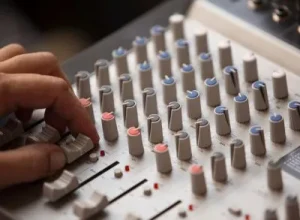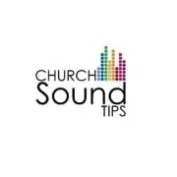Music producers and sound recording enthusiasts recognize that high-quality sound is fundamental to generating captivating audio content. The evolving landscape of technology continues to enhance audio quality and the tools available for audio production, thereby raising these types of questions.
To put it simply, yes, you can harness most modern audio mixers as audio interfaces. They can record and playback audio signals while also offering signal processing attributes like EQ, compression, and reverb. Nevertheless, the features your mixer can offer depend on the mixer model and may not parallel a conventional audio interface.
While USB audio interfaces are a more recent innovation, audio mixers have been around for ages. But is it feasible to use them interchangeably? Continue reading to find out!
Sound mixers are vital components in any sound system configuration. Interestingly, they can also function as audio interfaces. By linking your audio mixer to your computer via a USB interface, you can leverage its built-in recording interface and advanced mixing capabilities to capture high-quality audio. This can be particularly advantageous for podcasters, musicians, and other creative artists who seek to record audio cost-effectively.
Moreover, employing a sound mixer as an audio interface offers greater control over your recording levels and allows you to apply effects directly to your audio before recording. Therefore, if you’re searching for an interface, you might want to explore using a mixer as a versatile and budget-friendly alternative.
Advantages
Operating an audio mixer as a sound interface can deliver numerous benefits to musicians and sound recording enthusiasts alike. By connecting multiple instruments and microphones to the mixer, users can attain a professional audio quality that a standard computer sound card cannot offer. Audio mixers also provide a variety of audio shaping tools like equalizers and compressors to fine-tune the audio signals.
Furthermore, mixers offer a tangible interface for controlling input levels, volume, and effects, resulting in a more tactile and intuitive recording experience. All in all, a sound console can significantly augment a user’s capacity to capture and manipulate sound, making it an invaluable tool for any serious music production setup.

Some Considerations
Although an audio mixer can be a useful asset for both beginners and professionals in music recording, some factors need to be considered when using it with recording software or as an audio interface. Primarily, the number of audio inputs and outputs that your USB mixer possesses is crucial. If your plan is to record multiple instruments or microphone inputs simultaneously, you will require a mixer with adequate channels to accommodate them all. Additionally, ascertain that your mixer has a USB or FireWire port to connect to your computer.
Lastly, pay attention to the quality of the mixer’s preamps, as they greatly influence your recordings’ audio quality. By carefully considering these factors, you can ensure that you select the right sound mixer to meet your needs and deliver high-quality audio recordings.
Reasons for using an audio interface
In the world of audio production, the choice between audio interfaces and USB mixers often boils down to functionality and versatility. A standalone sound interface can record audio signals into a computer via USB or Firewire without requiring an additional mixer or preamp. The use of an interface can significantly enhance the quality of audio signal capturing and allow for seamless integration between audio hardware and recording software.
Moreover, some audio interfaces have additional features like onboard DSP processing, facilitating real-time digital processing of analog audio signals too. While audio mixers are predominantly used for live sound reinforcement, a standalone audio interface is ideal for recording and processing digital audio, making it an indispensable tool for any serious sound engineer or producer.
Final Thoughts
In conclusion, an audio mixer can indeed function as an audio interface, offering several benefits such as simple setup and control of multiple elements. However, using a mixer as an audio interface also presents certain limitations, including overall cost and compatibility with certain digital audio workstations. Additionally, reasons to use a USB interface over a mixer include the ability to record multiple simultaneous tracks (multitrack recording) and offer more customizable preset sounds.
So, as you decide between a built-in audio interface in a mixer and a USB mixer, keep in mind your audio inputs, multitrack recording needs, and compatibility with your preferred mixing console and digital audio workstation.

Leave a Reply